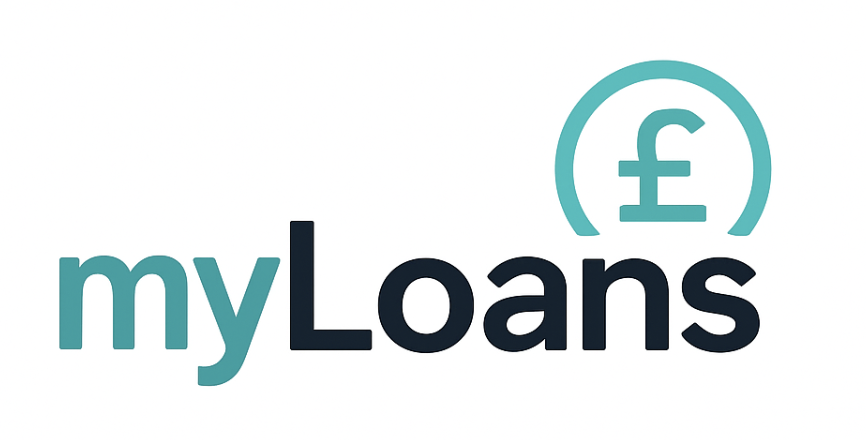Common Mistakes in Debt Consolidation Loans
Debt consolidation loans can be a lifeline for those in the UK looking to streamline their finances and reduce the stress of juggling multiple repayments. However, the process isn’t always as straightforward as it sounds. Many people fall into common traps that can worsen their financial situation rather than improve it. In this article, we’ll explore the most common mistakes borrowers make when taking out a debt consolidation loan — and how you can avoid them.
Debt consolidation means taking out a new loan to repay multiple existing debts, such as credit cards, overdrafts, or personal loans. This can simplify your finances with a single monthly payment and may reduce the overall interest you pay. But while this can be effective, especially if you have a poor credit history, it must be approached with caution.
Misconception: Debt Consolidation Will Fix Everything
-
Many borrowers mistakenly believe that consolidation alone will erase debt problems.
-
A consolidation loan is a financial tool, not a cure-all.
-
Success depends on maintaining good habits, like budgeting and avoiding further borrowing.
The Illusion of Immediate Relief
-
Consolidation can feel like instant breathing space, but this relief is temporary if you don’t change spending behaviour.
-
Without new habits, debt can build up again on credit cards or overdrafts.
-
Think of consolidation as a stepping stone, not the final solution.
The Importance of Financial Literacy
-
Understanding the difference between debt consolidation, debt management plans, and insolvency options (like IVAs or bankruptcy in the UK) is crucial.
-
Educating yourself prevents unrealistic expectations.
-
Organisations like StepChange or Citizens Advice offer free guidance on the best route forward.
Developing Long-Term Financial Habits
-
Build a realistic monthly budget.
-
Set savings goals and financial priorities.
-
Track progress regularly to stay on course.
-
Without these habits, consolidation may only provide short-term relief before debt returns.
Mistake #1: Not Understanding the Impact on Credit Rating
A debt consolidation loan can both hurt and help your credit score depending on how it’s managed.
-
Hard Searches: Applying for a new loan means a hard credit check, which can lower your score temporarily.
-
Credit Utilisation: Moving high-interest credit card debt into one loan may improve your score if you keep balances low afterwards.
-
Payment History: On-time repayments strengthen your credit record, but missed payments damage it.
The Temporary Dip in Credit Score
-
Expect a short-term dip from the credit search.
-
This usually recovers if you manage the new loan responsibly.
The Long-Term Benefits of Better Credit Utilisation
-
Shifting expensive revolving credit into one structured loan can improve your profile.
-
Keeping credit cards open but unused can further reduce utilisation rates.
The Significance of Consistent Payments
-
Payment history is the biggest factor in UK credit scoring.
-
Setting up direct debits avoids missed payments and protects your score.
Mistake #2: Overlooking High-Interest Rates
Many people focus on the simplicity of one monthly payment and overlook the cost.
-
Compare Rates: Use UK comparison sites to find the best deals across banks, building societies, and online lenders.
-
Credit Score Factor: Lower scores often mean higher rates. Improving your credit first can save money.
-
APR Awareness: Look at the APR (Annual Percentage Rate), not just the monthly repayment. This includes interest and fees.
-
Negotiation: Some lenders may adjust terms if they know you’re considering alternatives.
Fixed vs. Variable Rates
-
Fixed rate: predictable monthly repayments for stability.
-
Variable rate: may start cheaper but can rise, increasing costs.
Mistake #3: Ignoring Loan Terms and Conditions
Rushing into an agreement without reading the fine print is a common error.
-
Prepayment Penalties: Some lenders charge fees if you pay off early.
-
Origination/Arrangement Fees: Common in the UK, these can add hundreds to the loan cost.
-
Variable Interest Clauses: Watch out for loans where rates can increase after an initial period.
Mistake #4: Choosing the Wrong Type of Loan
UK debt consolidation loans come in two main forms:
-
Secured Loans:
-
Backed by an asset like your home.
-
Often lower interest rates and higher borrowing limits.
-
Risk: if you default, you could lose your home.
-
-
Unsecured Loans:
-
No collateral required.
-
Typically smaller loan amounts with higher rates.
-
Risk: harder to get with poor credit.
-
Choosing the wrong option can leave you financially vulnerable.
Mistake #5: Continuing Poor Spending Habits
Even with consolidation, overspending will undo the benefits.
-
Budgeting: Track income and expenses to stay within limits.
-
Savings: Build an emergency fund to avoid turning back to credit.
-
Financial Education: Stay informed about money management to avoid falling back into debt cycles.
Mistake #6: Not Seeking Professional Advice
Trying to manage everything alone can be overwhelming. Professional advice can make a huge difference.
-
Credit Counsellors: Free debt advice charities in the UK (StepChange, National Debtline) can help structure repayment plans.
-
Financial Advisors: Can help balance debt repayment with long-term financial planning.
-
Legal Advisors: Useful if you have significant assets or complex financial obligations.
Conclusion
Debt consolidation loans can be powerful tools for regaining control of your finances, but only if used wisely. By avoiding common mistakes — such as overlooking interest rates, choosing the wrong loan type, or failing to change spending habits — you can make debt consolidation work in your favour.
The key to success is building lasting financial habits, seeking advice when needed, and approaching consolidation as part of a broader financial plan. With the right approach, debt consolidation can support long-term stability and peace of mind.
Alternatives to Payday Loans | Safer Borrowing Options
Payday loans are often marketed as a quick fix for cash emergencies, but they are not the only option available. Whether you’re facing an unexpected bill, car repair, or temporary cash shortfall, there are several alternatives to payday loans that may offer lower...
Payday Loans with Bad Credit | Direct Lender Options
If you’ve been refused credit elsewhere and are wondering whether you can still get a payday loan with bad credit, you’re not alone. Thousands of people in the UK search every month for options like “payday loans with bad credit” or “direct lender payday loans”. While...
Personal Loan Debt Consolidation UK – Is It Right for You?
Juggling multiple credit cards, overdrafts, or loans can be stressful and expensive. A debt consolidation loan allows you to combine everything into a single monthly repayment, often at a lower interest rate. In 2025, UK lenders from high street banks to online...
Emergency Loans UK – How to Borrow Fast in 2025
When an urgent expense hits — like car repairs, medical bills, or a broken boiler — quick access to funds can be essential. In 2025, emergency loans in the UK provide a way to borrow fast, with some lenders offering same-day decisions and payouts. This guide explains...
Top 10 Personal Loan Providers UK 2025 – Rates, Features & Eligibility
The UK personal loan market in 2025 offers more choice than ever, with banks, supermarkets, online lenders, and credit unions all competing for borrowers. The best deal for you depends on your credit score, loan size, and repayment term — but comparing providers side...
Best Debt Consolidation Loans UK 2025 | Top Options
Managing multiple debts can feel overwhelming, especially with credit cards, overdrafts, and personal loans all charging different interest rates. A debt consolidation loan can simplify your finances by rolling everything into one fixed monthly repayment — often at a...
Best Bad Credit Loans UK 2025 – Top Lenders Compared
Having a poor credit score, CCJs, or past defaults doesn’t mean borrowing is out of reach. In 2025, several UK lenders specialise in products designed for people with bad credit — offering smaller loans, flexible repayment terms, and eligibility checks that won’t harm...
Home Repair Loans UK – How to Cover Unexpected Costs in 2025
A leaking roof, broken boiler, or urgent plumbing issue can quickly turn into an expensive problem — often when savings aren’t available. In 2025, home repair loans in the UK provide a way to spread the cost of essential fixes into manageable monthly repayments. This...
Green Energy Loans UK – How to Finance Eco-Friendly Home Improvements in 2025
Eco-friendly upgrades such as solar panels, insulation, heat pumps, and EV chargers can cut energy bills and boost property value — but they require a significant upfront investment. In 2025, green energy loans in the UK provide a way to spread the cost of sustainable...
Moving House Loans UK – How to Cover Relocation Costs in 2025
From deposits and removal vans to solicitor fees and new furniture, moving house in the UK can quickly add up to thousands of pounds. Not everyone has savings set aside to cover these costs upfront. In 2025, moving house loans in the UK provide a way to spread...
Education Loans UK – How to Fund Studies and Professional Courses in 2025
Not all education in the UK is covered by government student finance. Postgraduate degrees, professional qualifications, and private training often require self-funding — with tuition fees and course costs running into thousands of pounds. In 2025, education loans in...
Holiday Loans UK – How to Spread the Cost of Travel in 2025
Holidays can be some of the most rewarding experiences of the year, but they often come with a price tag that’s hard to cover upfront. From flights and hotels to all-inclusive packages and once-in-a-lifetime trips, the costs can add up quickly. In 2025, holiday loans...
Best Personal Loans UK 2025 – Top Lenders Compared
The UK personal loan market in 2025 is more competitive than ever, with high street banks, supermarkets, online lenders, and credit unions all offering products to suit different needs. Choosing the right provider can save you hundreds in interest and ensure...
Medical Loans UK – How to Finance Healthcare Costs in 2025
While the NHS covers most essential treatment, waiting lists, private care, and specialist procedures mean many people face out-of-pocket medical expenses. From dental work and fertility treatment to cosmetic surgery and urgent private healthcare, costs can run into...
Car Loans UK – Personal Loan vs Hire Purchase vs PCP in 2025
Buying a car in 2025 usually means more than just choosing the right vehicle — it also means deciding how to pay for it. In the UK, the three main options are a personal loan, hire purchase (HP), or personal contract purchase (PCP). Each has its own advantages,...

















